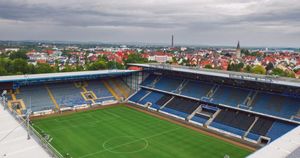Thailand is increasingly seen as a refuge for Russian citizens seeking to escape military conscription during the protracted conflict with Ukraine. This trend has gained momentum over the last three years, particularly following Russia’s military invasion of Ukraine, which prompted punitive sanctions from Western nations. Phuket, the famous southern island of Thailand, has become the epicenter of this migration, attracting those wishing to evade being drafted to fight.
According to reports by the Los Angeles Times, the influx of Russians has quadrupled since 2022, making them the largest group of foreign tourists to Phuket. With over one million Russians visiting annually, local authorities are left to grapple with the consequences of this demographic shift, including the burgeoning community settling down due to favorable real estate options and lax regulations compared to other countries.
Boon Yongsakul, the vice president of the Phuket Real Estate Association, humorously remarked, "Phuket seems like 'Little Moscow' now," noting the rapid increase of Russian nationals investing heavily within the property market. This surge has led to real estate prices soaring, with some condominiums doubling in value since 2020, driven partly by these new arrivals.
Many Russians, such as Bogdan Martianov from St. Petersburg, are choosing this tropical haven for its community and lifestyle rather than simply as vacationers. "I didn’t want to be drafted to fight in Ukraine... here, I can live freely and work online with my friends," Martianov shared about his experience moving, having initially sought refuge in Argentina before finding his way to Thailand.
Local real estate developers have begun to see the economy flourishing as demand for rentals and properties rises alongside the growing presence of Russian expatriates. Bill Barnett, managing director of C9 Hotelworks, commented on the increased spending power of Russians coming to Phuket, which has often been viewed positively. Yet, not everyone is welcoming this influx.
Thinakorn Jommoung, president of the Phuket transport operators association, voiced concerns over the competition from Russian-owned businesses. "They bring so much money, but it doesn't go to people like me. Local taxi drivers are struggling to fill their vehicles as many Russians establish their own companies and cut local residents out of the equation. My numbers are down by about one-third compared to pre-pandemic times," he lamented.
Frustrations exist within the local population about how the influx of foreign nationals, particularly Russians, changes the cultural and economic fabric of Phuket. Tour guide associations have observed the emergence of unlicensed Russian guides, mirroring past challenges faced with tourists from China. These changes have sparked concern among local workers who fear their jobs and sources of income may be at risk.
Despite the significant economic contributions made by Russian citizens, many locals are worried about potential cultural shifts and job security. Kris Thepbumrung, president of the Andaman Tour Guides Association, expressed mixed feelings, stating, "We want tourists. But we need quality ones who respect our local way of life. It’s all about balance."
The Thai government has begun allocating resources toward local police to address various issues arising from this new wave of migration, including tourism regulation and infrastructure maintenance. Yet, the enforcement surrounding working permits for foreigners has been questioned. Authorities recently reported numerous Russian nationals overstaying their visas, contributing to local unease. Stray ties to crime and anti-social behaviors have also surfaced, pressuring local governments to take action.
Phuket had been cautiously optimistic about reopening to international tourists post-pandemic, aiming to rejuvenate its economy heavily reliant on such revenues. The reappearance of Russian nationals at this scale rekindles historical concerns over cultural homogenization and potential exploitation by foreign enterprises.
For many, like 34-year-old Sergei Skorupa from Moscow, Thailand offers the freedom and security scarcely found within Russia at present. Skorupa embraced lifestyle changes, stating, "I'm safe here. And there’s so much opportunity to develop my business... I decided to stay longer. The vibe here is fantastic compared to my life back home where everything is tightly controlled by the government."
While the influx of Russian citizens provides economic benefits and revitalizes sectors of Thailand’s tourism-dependent economy, it simultaneously challenges local customs and practices. The hope for the future among locals is to find balance: welcoming much-needed business without compromising the integrity of their unique cultural experience.



